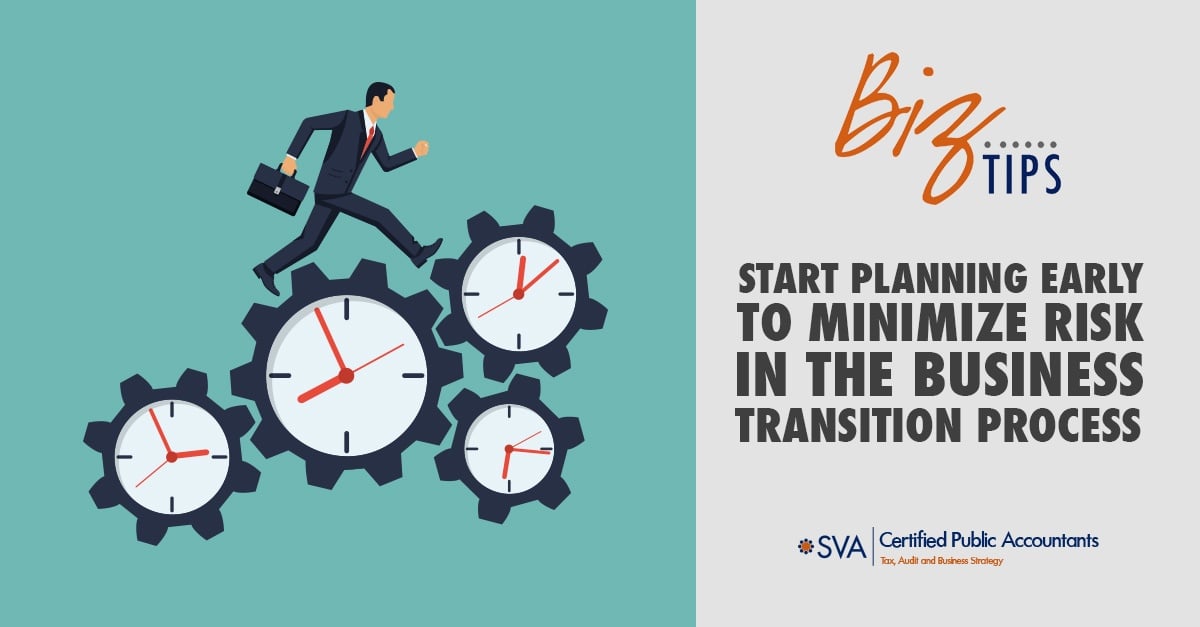“I haven’t decided what I ultimately want to do with my business, when I want to exit, how much money I’ll need, or whom to sell to. So how can I plan my exit?”
If you’ve said or thought this, you are not alone. If you aren’t sure about what you want from an exit or when you want to leave, why is it so important to decide to act today?
First, recognize that when owners have a passive attitude toward the irrefutable fact that they will—one way or another—leave their businesses someday, they are settling for less than the most profitable exit for themselves and their families.
Second, understand that preparing and transferring a company for top dollar takes time - on average 5 to 10 years. The more time owners have to design and implement tax–saving strategies, build value, strengthen management teams, and begin a gradual transfer of ownership (not control) to key employees or children, the more likely they are to reach their goals.
Planning Provides Financial Security
The most important goal to set is determining how much money you’ll need to be financially independent after you exit. All other goals should be considered within the context of your financial security. “It’s critical to determine your post-retirement income expectations years in advance,” states Timothy O’Brien, Principal with SVA Plumb Financial. “Understanding your financial goals will give you enough time to grow the value of your company, thus reducing the risk of exiting your business too soon.”
Start The Management Transition Early
What is the objective of selling or transferring ownership of the business? “Often, owners just want the business to continue to succeed,” says Nicole Gralapp, Principal with SVA Certified Public Accountants. “The company’s longevity is important to them.” This is why it is essential to initiate steps to ensure the buyer has the financial and managerial wherewithal to lead the business forward. Gralapp recommends that the management transition takes place before the financial transition. This allows the owner to begin limiting or narrowing the scope of his or her role in the company.
Business risk increases as you grow your business’s transferable value because a vital part of increasing value is making yourself inconsequential. If operational or financial adjustments need to be made, the owner can remain involved as needed, but the business is positioned to continue to thrive as the new ownership takes over.
Minimizing Future Earn-Out Risks
If you are self-financing a portion of the sale or a large amount of the payment is based on an “earn-out”, your future income is at risk if the business runs into financial difficulty before you receive all your funds. It is important to determine what level of risk you can take on and structure the transfer of controlling interest to match your risk tolerance.
Time to Get Started
Exit plans consider your personal values and which aspects of the business are important for your successor to continue to maintain. Using your goals and financial situation as bedrocks, a solid planning process will respect your values-based goals and find successors that are willing to commit to those values most important to you.
Planning also allows for adjustments to events that might negatively affect your business, such as economic downturns or rapid changes in the competitive environment, which in turn affect cash flow. Both Gralapp and O’Brien concur that the earlier you start planning, the more successful your transition is going to be. “The time you spend planning ahead will help minimize risks later”, says Gralapp.

This article was published in IB Madison Magazine, October 2018 issue.

